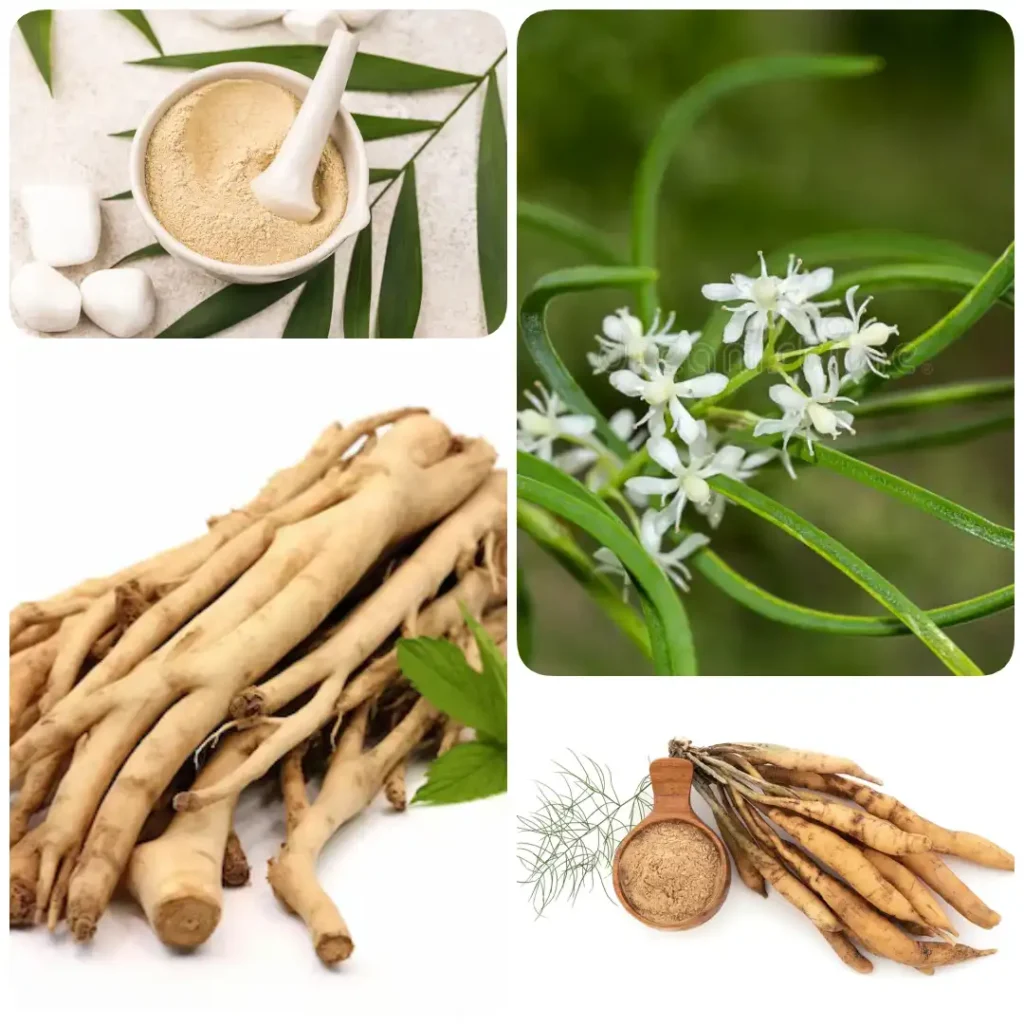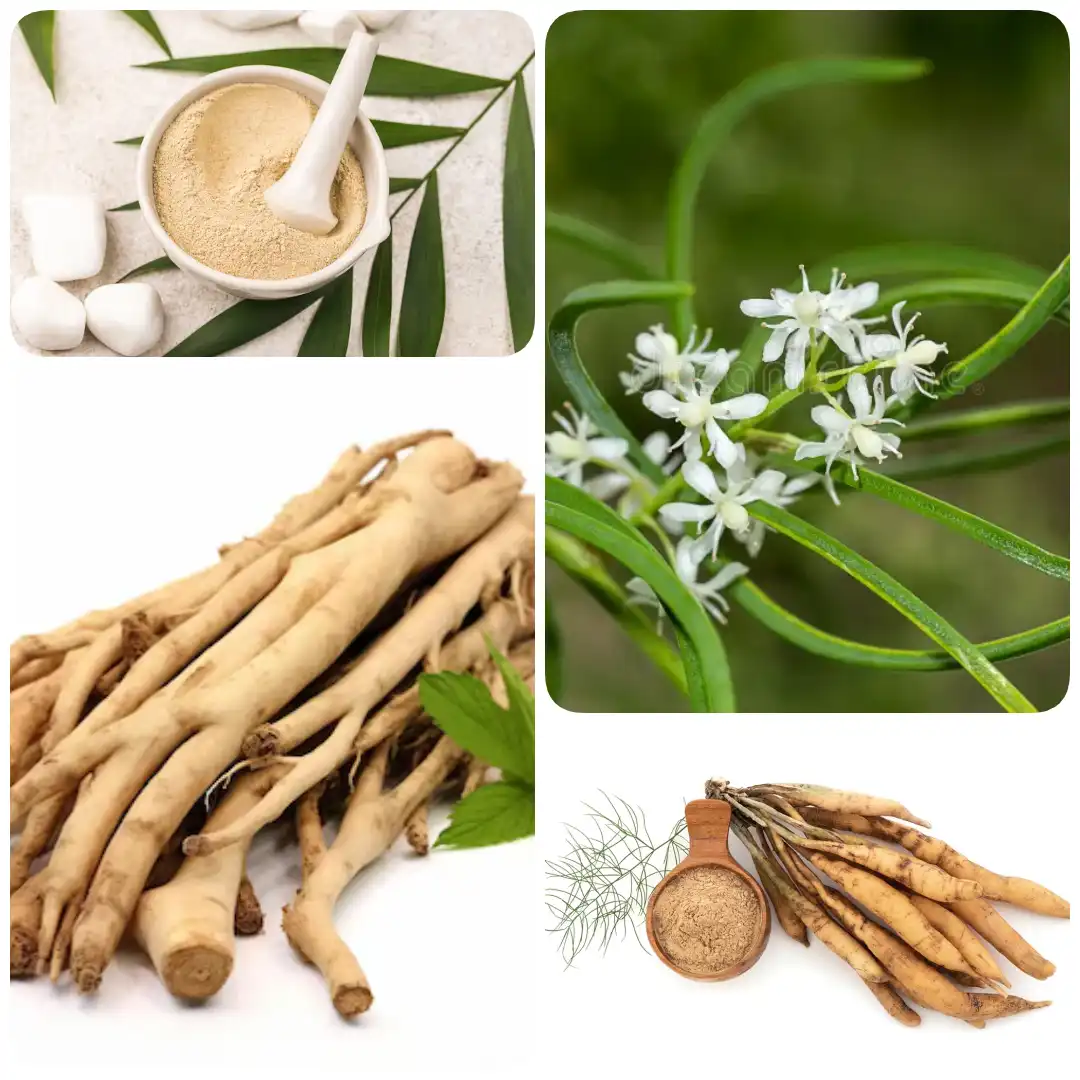
“Shatavari Benefits According to Ayurveda: A Complete Guide”
Botanical Name:
Asparagus recemosus, Asparagaceae
Common Names: Shatavari, Satawar, or Satamuli
Part Used: Tuberous roots
Introduction
Shatavari is a known as “Queen of herbs” whose tuberous roots native from Africa through southern Asia along with Indian subcontinent to northern Australia.The nature of asparagus(Shatavari ki taseer) is cold (cool)
In Ayurveda, it is used in Indian traditional medicine for lactation and more health benefits. Shatavari is the power tonic for female as is Ashwagandha for the Male.
The primary part of the Shatavari plant used medicinally is its tuberous roots. These roots are known for their medicinal properties and are used in various traditional healthcare products and ayurvedic remedies.
Ayurveda Plants/Herbs by exploreplease.com
Key Properties of Shatavari (According to Ayurveda)
- Rasa(Taste): Pungent (Katu) and Bitter (Tikta).
- Guna(Qualities): Light (Laghu), Dry (Rooksha), and Piercing (Teekshna).
- Vipaka(Post-digestive taste): Pungent.
- Veerya(Potency): Hot (Ushna).
- Effect on Doshas: Balances Vata and Kapha, and may increase Pitta in excess.
Different name in some other Language & Region:-
Assamese : Satmull
Bengali : Satamuli, Satmuli, Shatamuli
English : Asparagus
Gujrati : Satavari
Hindi : Satavar, Satamul
Kannada : Ashadi poeru, Halavu Bau,
Narayani, Makkala
Malayalam : Satavari Kizhangu
Marathi : Shatavari
Punjabi : Satavar
Tamil : Shimai-Shadvari, Nilichedi Kishangu
Telugu : Sima-Shatawari (Dry Root), Pippipichara, Pilliteegalu(Fresh Root)
Urdu : Satawari
Health Benefits of Shatavari
- Boosts Immunity
Shatavari is used as an immunity booster in Ayurveda. As per studies, Shatavari increased antibodies and combat against any disease. It gives faster move to recover fast Its leaves are rich in antioxidants and micronutrients that enhance the body’s defense mechanisms.
- Anti-inflammatory properties
Shatavari has very importantly anti-inflammatory property and work similar as prescription drugs. Shatavari reduce inflammation without serious digestive side effects.
- Respiratory Support
- Shatavari is an excellent remedy for colds, coughs, asthma, and bronchitis. It acts as an expectorant and helps in clearing respiratory congestion.
- Reduces Stress and Anxiety
Shatavari is very potent herb to reduce stress and anxiety. It is used as strong antioxidants abilities which impacted on neurotransmitters in the brain.
- Supports Heart Health
- Shatavari may helps to maintain blood sugar and promotes a healthy cardiovascular system.
How to use Shatavari as per Ayurveda
1. Useful in Lactation: 10 gms fresh or dry roots of Shatavari is boiled in 100ml of milk, till it reduced to 50ml. This milk is filtered and added with sugar. It is given to the lactating mothers, early in the morning to improve breast milk production.
2. Useful in Rejuvenation: 5-10 gram of root powder of Shatavari is administered along with powdered sugar candy, twice a day. This relieves work exhaustion, numbness, neuritis, fatigue, lethargy, loss of libido etc.
3. Useful in Urinary tract infections: Regular consuming the 5 gram of the Shatavari root powder, during night times in recurrent UTI, spermaturia, haematuria and backache are cured successfully.
4. Useful in Haematuria: 5 gram powder of Shatavari with sugar is taken twice a day after food .This is given to the individuals, suffering from burning urination and bleeding from urethra.
5. Useful in Oligospermia: Fine powder of equal quantity of Shatavari, Ashwagandha and apikacchu are mixed together. 3-5 grams of this mixture is cooked with a cup of milk for 5 minutes, filtered and consumed. This promotes sexual libido and increases the sperm count too.
6. Useful in Weight loss: 5gms Shatavari and 3gms Pippali powder is taken during night or early in the morning along with Banana milkshake. Good weight gain is observed within 30-40 days.
Precautions:
- Pregnant and nursing ladies should take consultation from healthcare expert before using of Shatavari.
- Excessive use of Shatavari may discomfort bowel movement.
- Peoples whose allergic to asparagus or related plant should avoid Shatavari.
Caution:
Everyone’s supplement needs are different, so it’s important to talk with a healthcare expert—like a doctor, dietitian, or pharmacist—before using them. Supplements aren’t meant to treat, cure, or prevent diseases.
Frequent Asked Questions (FAQs) for Shatavari.
- What is Shatavari?
- What are the main benefits of Shatavari?
- Is Shatavari only for women?
- How is Shatavari typically consumed?
- What is the recommended dosage?

Learn and enjoy about new stories for child please click on the kids video page




Post Comment